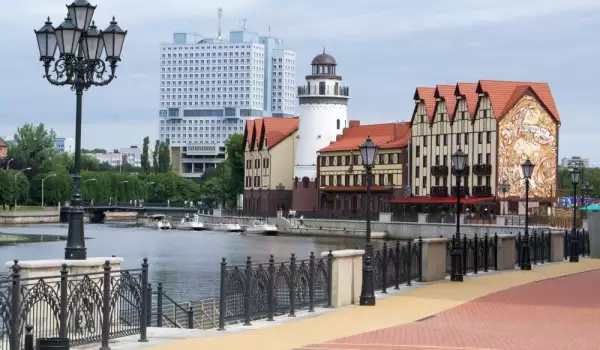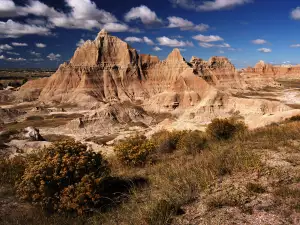Kaliningrad

Kaliningrad is a city of the Teutonic order and amber. If you do not know the facts and rely on geographic data, it would never cross your mind that Kaliningrad is a part of Russia. Kaliningrad is actually the most western area of the vast Russian territory, but it has no land connection with the country. It is situated between Lithuania, Poland and the Baltic Sea. Here is the only port of the country in the Baltic Sea that does not freeze.
Kaliningrad is by nature a one million Russian enclave. From Warsaw, Kaliningrad is only 35 km away and the trip to the Lithuanian border is 70 km. Today the population of this interesting place is a heterogeneous mixture of Belarusians, Ukrainians, Russians, Germans, Lithuanians and Poles.
From a natural perspective, Kaliningrad is located in a very picturesque and rich area. It is full of lakes and rivers. The uniqueness of the place comes from the fact that it is one of the places in the world where natural amber is found. Kaliningrad has one of the longest lagoons in Europe, which is located on the seaside of the city. Amber dunes reach a height of 70 meters and their length is about 98 kilometers.
The old name of Kaliningrad is Koningsberg, named in honor of its founder - Czech King Ottokar. It is one of the main cities of the Teutonic Order, the then center of East Prussia. In it was born one of the most famous philosophers - Immanuel Kant. In 1945 the Russians, headed for Berlin occupied the field and changed the name of the town to the name of communist leader Mikhail Kalinin.
Kaliningrad can be called a mature and popular tourist destination, but that does not mean that it has nothing to be seen. Among the landmarks of this city is the Königsberg cathedral, Victory Square, Köningberg fortress, home to the Council, the cathedral "Jesus the Savior", the Old Prussian zoo and the State University, "Immanuel Kant". There is a museum of the world's oceans, as well as several historic castles, reminiscent of knights’ times.
In Kaliningrad, you can see the first stronghold of the Teutonic knights, the castle Insterburg. In the castle was preserved one of the most interesting mysteries of the 20th century – the Amber Room. This room was a gift to Russian Tsar Peter the Great by Prussian King Friedrich Wilhelm. Gradually it was decorated with gold and amber, and its weight is measured at 6000 kg. During WWII the Germans "packed" the Amber Room in wooden chests obscured in the basement of the castle Koningsberg. The boxes disappear during the bombing of the city at the end of the war and are still not found.

The main cathedral of the old city of Königsberg was built in 1333. It was destroyed in 1944 during British air attacks on German troops. The restoration of this temple in Kaliningrad started in 1994 with financial support from Germany, Poland and Russia. In the cathedral is a concert hall and an Orthodox chapel, its opening ceremony took place in 2005.
Kaliningrad Zoo is one of the largest and oldest in all of Russia. The Zoo in Kaliningrad was inaugurated in 1896 and in its collection, covering an area of 16.5 hectares, houses 315 species. The total number of fauna representatives amounts to about 2300. Kaliningrad zoo came up at the same time is a botanic garden. Along with species of the park visitors have the opportunity to glimpse at rare plants, among which can be seen the Ginkgo.
In the zoo can be viewed sculptures of animals such as the moose bronze statue, stone statue of the orangutan and others. The Zoo entrance is decorated with a group of sculptural portraits of various animals. The territory of the zoo has a few pre-war buildings and a fountain. In the zoo live 59 species of mammals, 84 species of birds, and about 42 species of reptiles, 105 species of fish and 8 species of invertebrates. 54 of the species of animals at the zoo in Kaliningrad are included in the International Red Book.






